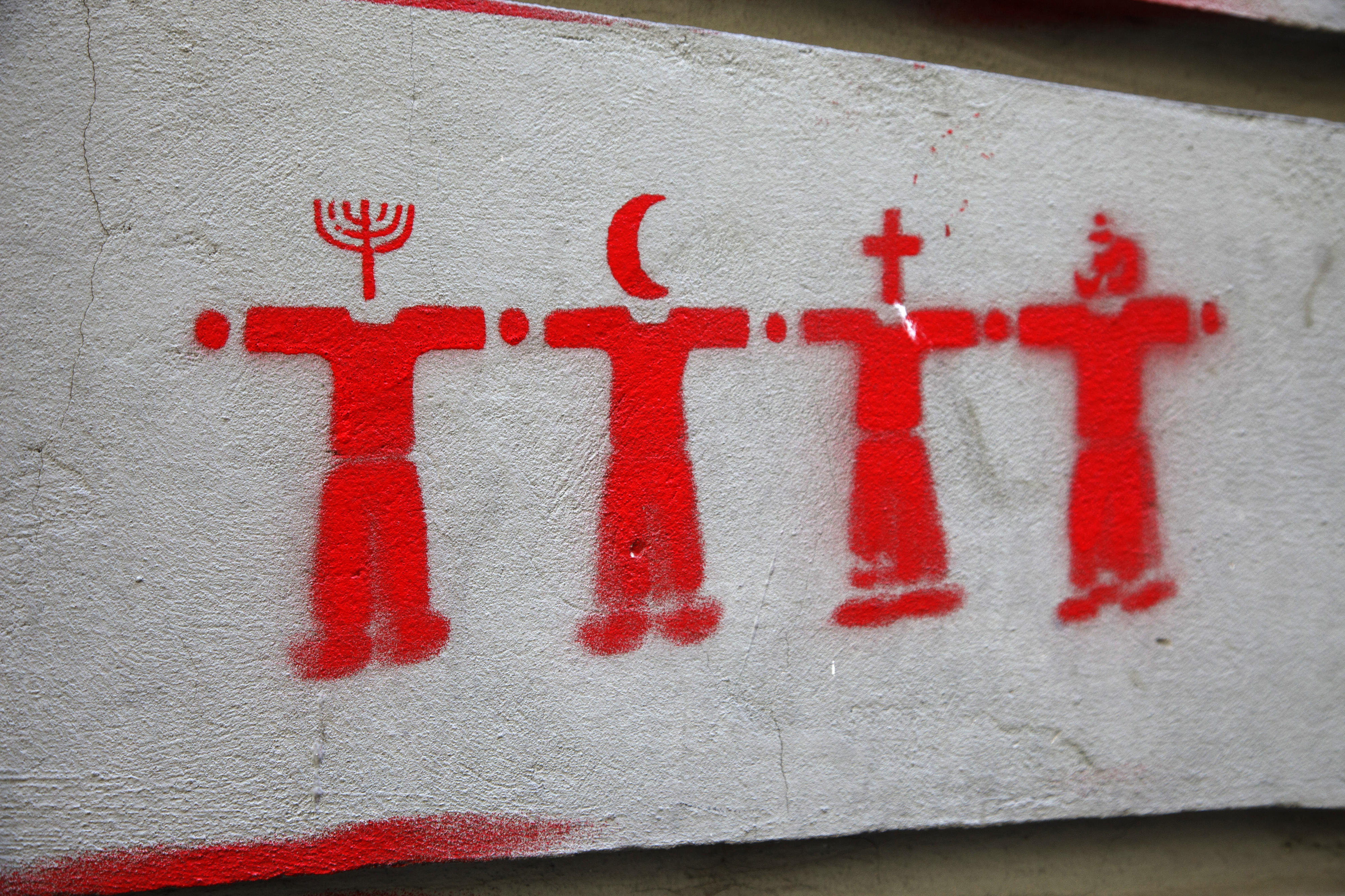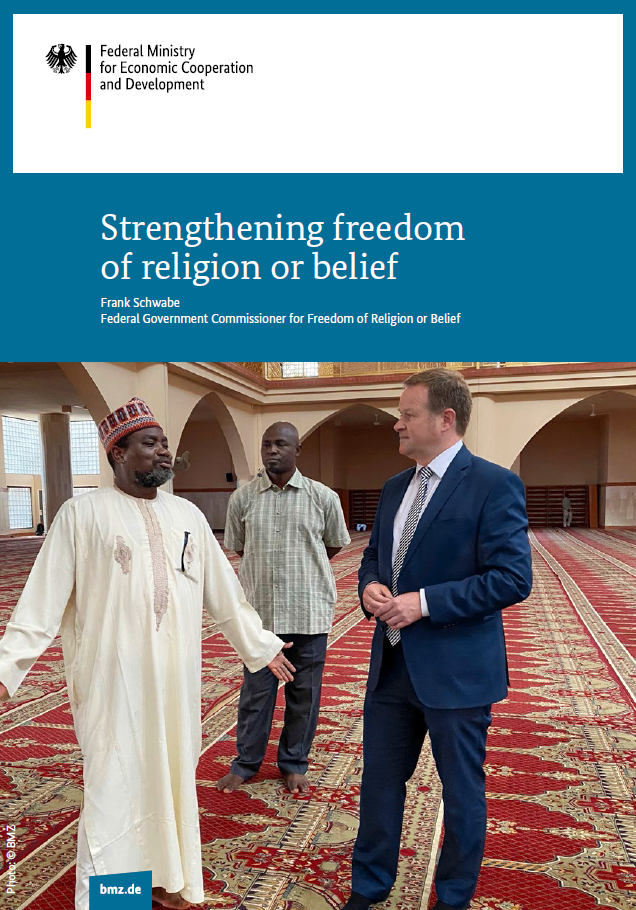Graffiti: World religions
Copyright© Pfarrmedien Österreich, Gerd Neuhold, via flickr, CC BY-NC 2.0
Legal basis Freedom of religion or belief
The human right to freedom of opinion, conscience, religion or belief, to give the right its full title, is enshrined for example in Article 18 of the Universal Declaration of Human Rights and in Article 18 of the International Covenant on Civil and Political Rights. These are the most important international standards.
The German Basic Law also guarantees freedom of religion or belief. This includes freedom to have or to adopt a religion or belief of one’s choice, and freedom, either individually or in community with others and in public or private, to manifest and practice one’s religion or belief. That also includes the freedom to convert to another religion and the freedom not to have any religion or belief (negative freedom of religion).
Human rights are indivisible and universal
The Universal Declaration of Human Rights and the ratification of the International Covenant and other human rights conventions and agreements by most of the countries in the world mean that human rights are universally binding. The principle of human rights derives from the inherent dignity of human beings.
The desire for a world in which people enjoy freedom of speech and freedom of religion, and freedom from fear and want is recognised in the second paragraph of the preamble to the Universal Declaration of Human Rights as the highest aspiration of the common people. This means that freedom of belief in combination with the other fundamental freedoms is of central importance.
Freedom of religion or belief protects the individual
The human right to freedom of opinion, conscience, religion or belief does not protect a religion as such, it protects each person as an individual. Religions or traditions should not be misused in order to violate or qualify human rights. This applies especially to women’s rights or the persecution of people because of their sexual orientation.
As at: 26.02.2024

